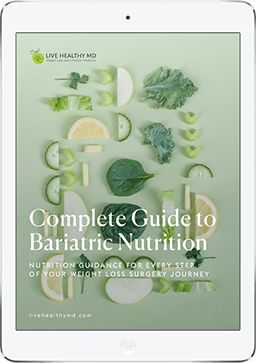
You've probably heard the term "whole food" used frequently within nutrition circles. There's the very popular Whole30 Program, Eat Whole Food recommendations, and even the Whole Foods Market chain of grocery stores. But what exactly are whole foods? In general, whole foods are single ingredient foods that have had little or no processing. There are many reasons why it is, in general, healthier to eat foods that are less processed.
In a perfect world we'd prepare our meals from scratch, ideally from food grown in our own gardens. In prior generations there was no other choice. There were no convenience foods or fast food restaurants.
The Ins and Outs of Processed Foods
What They Put In: Salt, Sugar, Preservatives, Artificial Colors and Flavors
In the past, fresh foods were preserved by salting, drying, smoking, canning, and freezing among other methods. The basic purpose of preservatives is to keep food from spoiling and prevent people from becoming sick. However, preservatives are often thought of negatively today because their purpose has shifted from improving food safety to increasing shelf life—ultimately driving profits for retailers.
Salt and sugar are added to many processed foods to make them taste better. Unfortunately, added sugars can lead to weight gain and present problems with blood sugar regulation, especially with patients who have diabetes. Having so much added sugar also makes us want more sugar. The more carbs and sugar we eat, the more we want and the more weight we gain. Similarly, salt added to food does enhance the flavor but extreme amounts of salt intake may negatively affect blood pressure in salt-sensitive individuals.
Some people have allergies or sensitivities to many of the artificial colors and flavors that are used in processed foods. There are so many used that it's often difficult to determine which ingredient in a product might be causing the problem.
What They Take Out: Fiber, Naturally Occurring Vitamins/Minerals, Natural Colors and Flavors
Many processed foods remove the fiber. Fiber has many benefits to the body including helping to promote healthy digestion and maintaining gut health. Many fiber rich foods also help regulate blood sugar.
Processing also often removes heat and chemically sensitive vitamins and minerals that naturally occur in foods. Even if the food has been fortified or the vitamins and minerals have been added back after processing, the natural structure has been forever changed and absorption can be negatively affected.
Many of the natural colors and flavors present in whole foods, such as flavonoids and phytochemicals, are powerful antioxidants that help the body fight diseases. Unfortunately some processing also removes these important nutrients.
The bottom line is that whenever possible, we should choose foods in the least processed form possible. Most of these items are located on the outside walls of the grocery store: produce, meat, poultry, fish, shellfish, eggs, cheese, dairy, nuts. For most people it's not practical to avoid all processed foods, however choosing whole foods as often as possible will benefit your health significantly.
Benefits of Eating a Whole Food Diet
1. More Energy. We have all had a period of bad eating that left us feeling lethargic and craving more junk food. Doctors and nutritionist don't need to prove that eating a diet high in healthy, whole foods will boost energy levels because, as I just stated, you can already feel the correlation. Ultimately, eating a well-balanced diet allows the body to better regulate and manage energy levels throughout the day.
2. Better Digestion. Fiber, as stated above, is an important nutrient that aids in the digestion of food as well as the satisfaction over long periods of time. With a whole foods diet, you will (should) be consuming the recommended amount of fiber that will keep you full for longer periods and will work to keep things moving.
3. Better Skin. Many foods that make up a whole food diet contain vitamins and minerals, such as B2 and vitamin C, that work to promote smooth, younger looking skin.
4. Curing of Health Problems. As mentioned above, eating foods that contain lots of sugar, salt, and other preservatives can negatively impact your blood pressure—leading to cardiovascular diseases. By consuming whole foods, you can significantly decrease your risk of developing not only heart disease and/or hypertension but also diabetes, certain cancers, arthritis, metabolic syndrome, and the list goes one.
5. Weight Loss. We don't have to say it twice. When you eat a diet centered around whole foods, you will lose weight, even if it is just a few pounds.











